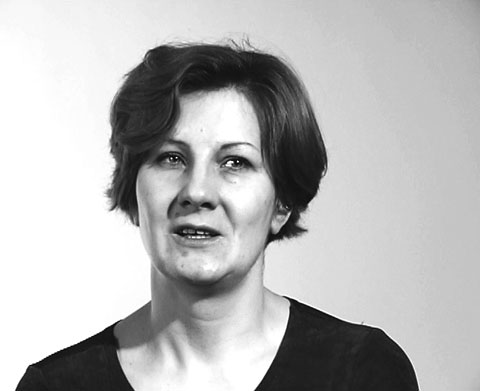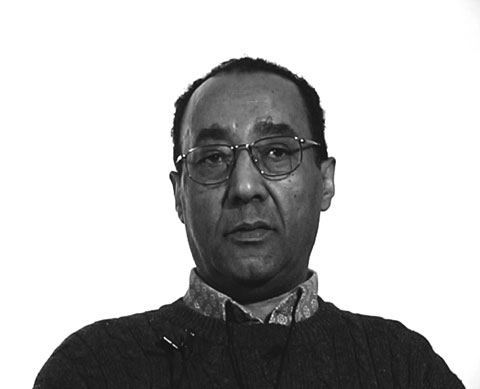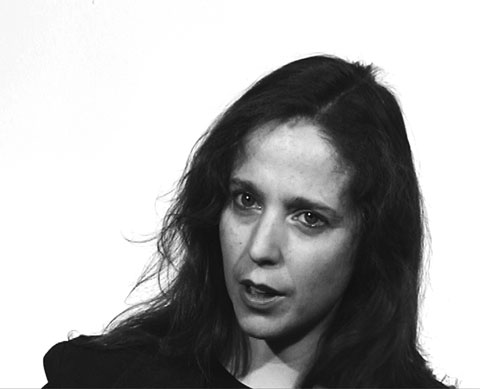Ideals 2004
“You might say, our ideals are like head lights. They light the way ahead. Without them we are lost, unable to make decisions. With them, we have a good chance of success. We need clear, strong ideals.”From: „Understanding our Ideals”, teaching film USA, b/w, undated, author unknown, Prelinger ArchivesMy work Ideals focuses on the question, whether ideals influence and are important in our lives. In case it still holds true: What are these ideals? How have they changed in comparison to previous times?Based on these questions 80 interviews have been made until now. I have had neighbors and friends talk to me about their personal views on ideals. In addition to that, all interviewees have been photographed.The initial results are presented in the film IDEALS 2004. Within this film short excerpts from the interviews have been selected and put into relation to each other.Ljudmila Podgornaja had hoped to become a doctor, but this dream never came true. So, she decided to become an operating room nurse instead. Since then, she understood that ideals and dreams are not the same. “Dreams are something else, they do not fulfil“ says Ljudmila. Her ideal is to help other people. Following the example set by her teacher Maria Alexandrovna, she is trying to live her ideal in everyday life now.Seyoum Mulugeta no longer has ideals today. In the past, he had very specific ideals. They were about improving the situation of his people. Later, when he was forced to leave his country, he could not fulfil his ideals anymore. However, Seyoum states that in general it was important to have ideals. “When you are young“, says Seyoum, “you need to have ideals!“.Carla Åhlander tells about her Italian grandmother who, during World War II, invited German soldiers for a meal in her house, although she was an ardent communist. However, she also was an ardent Christian. Her ideal was Jesus Christ, who had lived pure communism in her opinion. This grandmother’s attitude and way of life has been passed on through the generations of Carla’s family.Heiner Behr disapproves of ideals because he believes they are insincere. He grew up in the GDR. “They called it ‘examples’“, says Heiner. He tells us about his schooldays. At primary school his class had to read a story about a Soviet boy who reported his father for something forbidden, and the father was executed in the end. The boy’s action was presented to the pupils as an example. However, Heiner stood up and left the room because he thought it was a “scandal”.DV film, 20 min, b/w, stereo German, Russian, English, SwedishPremière at the Cinema ARSENAL, Berlin, in October 2004With: Leonhard Minutillo, Ljudmila Podgornaja, Stefan Dörner, Katja Smacka, Annika Friese, Johan Lorbeer, Birte Ziegler, Thomas Müller, Susann Walk, Axel Lapp, Thilo Krenge, Ronnit Krenge, Christoph Wiesner, Susanne Ziegler, Heiner Behr, Carla Ählander, Alexander Branczyk, Ania Corcilius, Pedro Tivadar, Ali Mekaoui, Geka Heinke, Seyoum Mulugeta, Maren Strack, Carsten Lohmann, Heike Nehl, Mark Boswell.Additional sound processing: Lupo/dubplates & mastering



